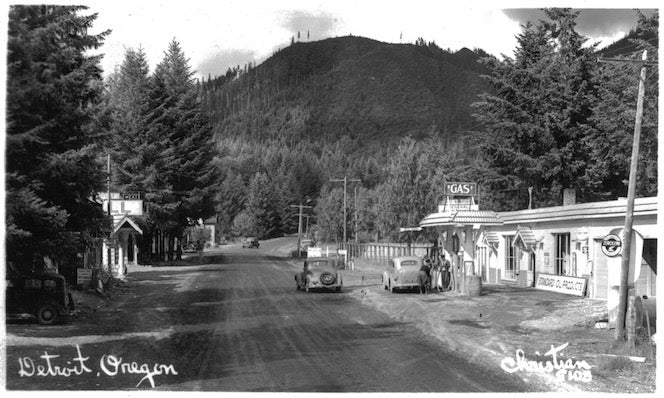
Bob Reinhardt’s research has focused on creating a multimedia, multiplatform public history project called the Atlas of Drowned Towns. Reinhardt is compiling the stories of communities in the American West lost in the name of progress to hydroelectric, flood control, and irrigation dam construction from the 1920s to the 1970s.
An associate professor in the Department of History, Reinhardt began his research on the Snake River in towns like American Falls, Idaho which the Bureau of Reclamation moved to make way for a dam in 1925. The original American Falls, settled in 1800, now sits at the bottom of a reservoir.
The United States Army Corps of Engineers has given Reinhardt a grant of $980,000 to continue work on his public history project. With the additional funding, Reinhardt will shift his focus to towns in Oregon’s Willamette Valley. The grant, spread over five years, will help him hold community events to collect oral histories from community members, catalog and photograph artifacts, hire graduate students to aid with his research and create a public digital platform.
“The Atlas of Drowned Towns is a massive project. It’s about these lost communities, people who are interested in these places and stories, other scholars who are working on displacement, and much more,” Reinhardt said. “I’m humbled by the opportunity to build the foundation of what I think will be an important contribution to our understanding of not just these inundated places, but of the American West more broadly and, even more broadly, how societies make decisions about the costs and benefits of different definitions of ‘progress.'”
Reinhard said he looks forward to working with local communities, tribes and others affected by displacement and to “get Boise State history students out into the field, researching in the archives and meeting and listening to stakeholders.”
An earlier grant from the National Endowment for the Humanities Digital Projects for the Public program also supported his research.
Read an earlier story and Q&A with Reinhardt
Listen to Reinhardt interviewed on Boise Public Radio’s “Idaho Matters”